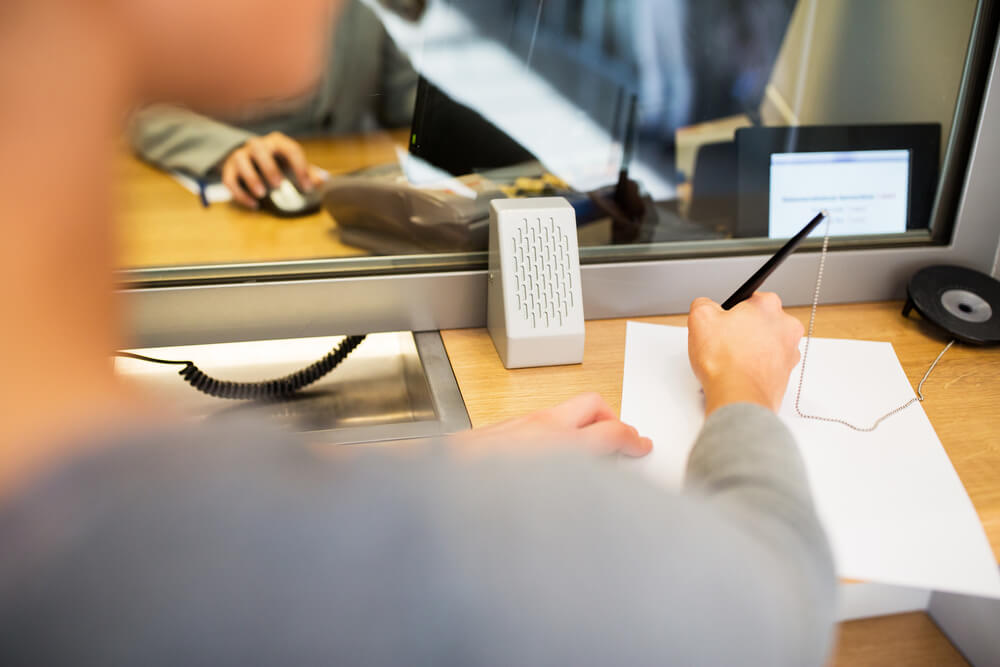HSBC is a UK bank that is rolling out voice recognition technology for its banking system. The goal is to increase security, but many people still have questions about how secure voice biometrics is. Additionally, how effective voice recognition in banking really is.
The company already has fingerprint scanners for its smartphone app, but it’s not the first bank to provide that sort of technology. Generally, if there are any conditions that might seem unusual, traditional safeguards kick in to protect customers. This may be something as simple as requiring a password to check account balances or change account settings. So exactly how safe is voice recognition in banks?
How Voice Recognition Technology Works
The bank is using voice recognition technology in two main ways. It uses a fingerprint scanner on its mobile devices. This includes the iPhone series of phones. Previous model iPhones can’t use fingerprint security apps.
If a customer calls the phone service, the voice identification service matches the customers voice with several unique identifiers. Currently, it checks over 100 identifiers that may include the intonation of the voice, the accent, method of pronouncing words and the physical structure of the vocal cords. The human voice has several identifiers that make it just as unique as a fingerprint.
A training session is required. The bank voice recognition session takes the user through the various ways that a person says a word, and tracks these identifiers. It determines what is unique about that person’s voice, and then creates a record to identify the person in the future. When a person attempts to access their bank account and log in, they are asked to repeat a few words. These are then compared to a Voice ID.
Potential Problems With Voice Technology
One potential issue that people have raised is whether a high-quality recording of a voice could be used to trick voice recognition technology. The truth is this is unlikely since any audio recording is not going to be of a high enough quality to trick the system. It would also require the hacker to create an advanced program that could use the person’s voice to repeat phrases asked by the system. The voice replication wouldn’t sound natural, and it would trigger additional voice recognition security protocols to protect the customer. However, voice recognition technology is even more secure than a fingerprint, so this makes it an ideal option for banks.
A Replacement for Knowledge-Based Security
A dedicated criminal could likely bypass any security system with enough time and expertise. With knowledge-based challenge questions, it’s too easy to find the answers to these questions. Especially with social media so prevalent, discovering your mother’s maiden name, your favorite pet or food wouldn’t be much of a task for a criminal. Challenge answers are often forgotten by the account owner, which results in a less effective experience. By using voice recognition technology, it’s possible to ensure with a greater degree of accuracy that the person on the other end is who they say they are.
Voice Recognition vs Speech Recognition
Speech recognition technology is improving, but it still has some distance to go before it can be used flawlessly. Voice recognition, on the other hand, doesn’t require the same sort of analysis to determine the owner of the voice. Every voice has a unique signature, and the technology does not require the ability to understand words. Voice recognition is simply identifying that the voice belongs to a specific person. Speech recognition is actually much more complex because it requires the translation of sounds into recognizable words, and there is plenty of room for error.
Other Banks Using the Technology
HSBC is the first bank to publicly announce it’s using voice recognition technology. However, the biggest roll-out has taken place in Turkey. Both the United States and the United Kingdom are are also using voice biometrics in banking, although they aren’t necessarily telling their customers about the deployment. Chase and Wells Fargo are taking voice prints in the background, and the Vanguard Group are also using the technology. The largest roll-out is with Turkcell in Turkey where the data of 10 million customers is stored.

